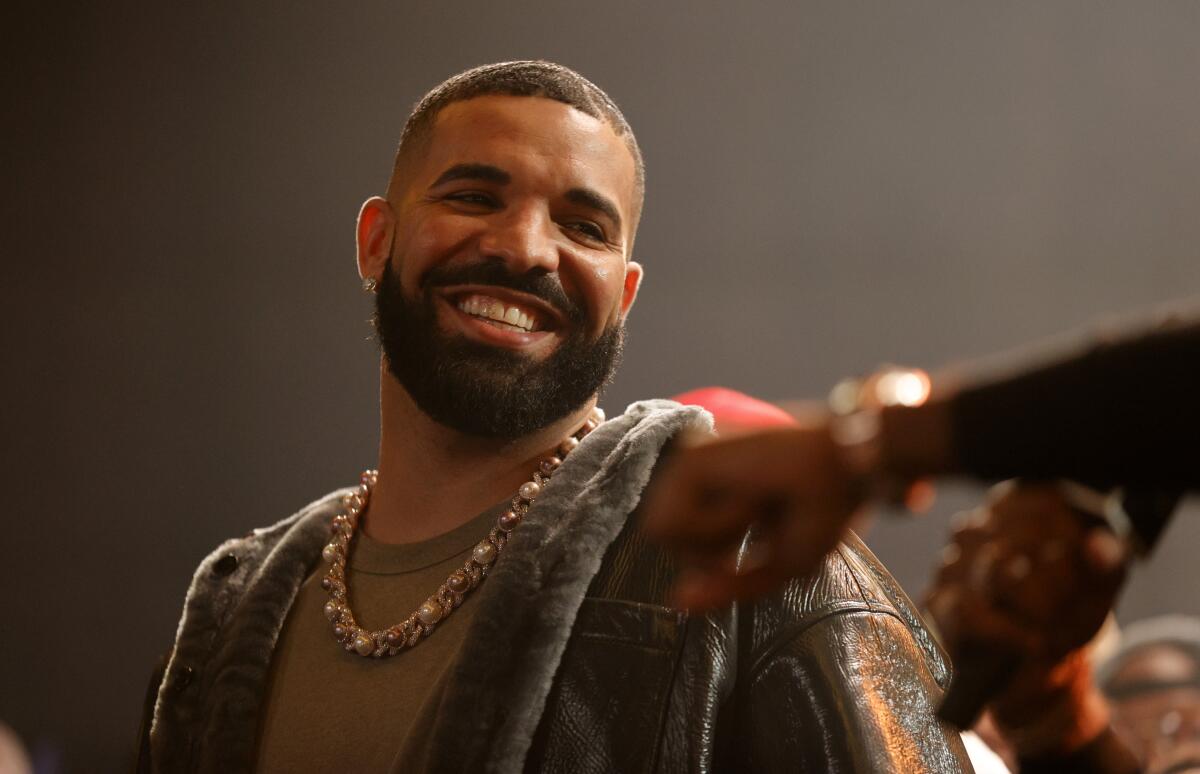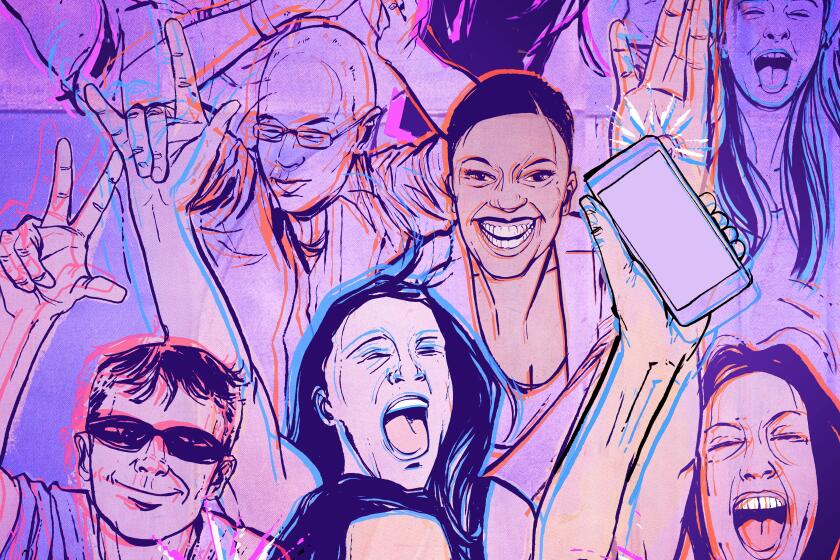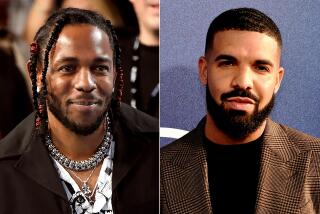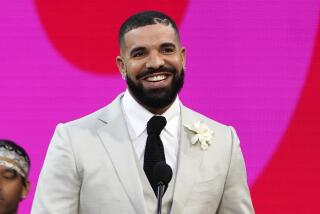Out: Drake as romantically wronged rapper. In: Drake as romantically wronged house diva

- Share via
To call Drake’s “Certified Lover Boy” a flop, as many have since the album came out in September, is to say more about the hip-hop superstar’s overall success than about the perceived failure of a Grammy-nominated LP that broke several streaming records on its way to finishing 2021 as last year’s third-biggest release.
But OK, sure: Unlike pretty much everything Drake had done since the start of his major-label recording career more than a decade ago, the meandering “Certified Lover Boy” fell slightly out of sync with the pop culture zeitgeist. The album didn’t spin off a series of durable radio hits (though “Way 2 Sexy” went to No. 1) nor did the music take over TikTok and social media in the manner of a modern smash. For perhaps the first time, Drake’s grip seemed to slip.
Which makes it easy to view “Honestly, Nevermind” — the “CLB” follow-up he surprise-dropped Friday just hours after revealing it existed — as Drake’s shot at a reset. Composed almost entirely of sleek, airy club music jams in which he does as little rapping as he ever has, Drake’s seventh studio album marks an undeniable change in course, even if the 35-year-old remains lyrically preoccupied with the petty romantic grievances that have always fueled his songwriting.
Yet what an appealingly perverse choice for a would-be course correction. Yes, plenty of pop stars have been exploring dance music lately, from Dua Lipa to Cardi B and Megan Thee Stallion (whose “WAP” sampled a classic Baltimore club track) to Drake’s old collaborator, the Weeknd; Drake himself has flirted with the sounds of house music in songs such as “Passionfruit” and “Take Care.”

But here he leans into the concept harder than any other A-list act, laying tightly structured verses and choruses over thrumming, go-forever beats produced by a team led by his longtime studio accomplice, Noah “40” Shebib, along with Gordo and South Africa’s Black Coffee. In the tenderness of the music — more than one song recalls post-“Missing” Everything but the Girl — Drake is toying with hip-hop’s evolving ideas about masculinity; it’s beguiling too to hear pop’s preeminent solipsist engage with grooves and textures traditionally geared to communal purposes. (Maybe the privileged isolation of Drake’s peak-COVID-era “Toosie Slide” video finally got to him.)
Does Drake make for a good house diva? His singing on “Honestly, Nevermind” is clearly slathered in autotune, and after opener “Falling Back,” where he ascends into a breathy falsetto, his vocal melodies rarely venture beyond a comfortable midrange. Yet there’s an endearing vulnerability to his delivery in songs like “Texts Go Green” and “Calling My Name” that blends beautifully with the promise of abandon in the production; the result feels melancholy and ecstatic at the same time, as in “Down Hill,” where Drake’s lamenting a relationship in “constant confusion, nearing conclusion” while the drums and keyboards keep threatening to turn into Lionel Richie’s “All Night Long.”
From intimate clubs to picturesque outdoor theaters to state-of-the-art arenas and stadiums, there’s no better place to see live music than SoCal.
Though the music moves at a quicker tempo than on Drake’s earlier records, he’s still surrounding himself with signifiers of plush sophistication: the cooled-out saxophone that ripples through the album’s instrumental opener, for instance, or the fluttering Spanish-style guitar in “Tie That Binds.” But he appears earnest in his desire, whatever inspired it, to meet house music on its own terms. Those propulsive piano triplets in “Massive”? As essential to the genre as a power chord is to hard rock.
Indeed, it’s Drake’s commitment that makes the album’s closer, “Jimmy Cooks,” so jarring. Built on a sample of a throbbing Memphis rap track, it’s got Drake and the LP’s lone featured guest, 21 Savage, trading rounds of tough talk about fearing no enemy. “You don’t like the way I talk? N—, say something,” Drake dares one such foe, spitting out the words instead of cooing them as he’s been doing. It’s a reminder that he knows we’re listening — and that he’s always formulating a response.
More to Read
The biggest entertainment stories
Get our big stories about Hollywood, film, television, music, arts, culture and more right in your inbox as soon as they publish.
You may occasionally receive promotional content from the Los Angeles Times.











